Search Results
Showing results 61 to 80 of 208
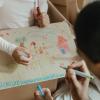
Learning the Land
Source Institutions
In this activity, learners will take a step back and learn the history of the land they live on, and the people who used to live on it.

Build A Dinosaur Nest
Source Institutions
In this outdoor activity, learners will gather natural materials outside that they think a dinosaur would want to lay its eggs in.

Observing Earthworm Locomotion
Source Institutions
In this activity, learners collect worms and then observe how they move.
Effects of Solar Radiation on Land and Sea
Source Institutions
In this activity, learners explore the different heating properties of soil and water.
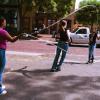
Twirling Rope Frequency
Source Institutions
In this activity (page 1 of the PDF under SciGirls Activity: Double Dutch), learners will stand twelve feet apart swinging a rope at the slowest tempo possible while someone uses a stopwatch to record

The Shadow Knows II
Source Institutions
In this activity, learners will measure the length of a shadow and use the distance from the equator to calculate the circumference of the earth.
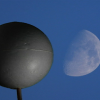
Why Does the Moon Have Phases?
Source Institutions
In this activity, learners use a simple 3D model to discover why the Moon has phases.

Soil Density
Source Institutions
In this activity, learners will test soil content using their sample, some water and a container that seals.

Erosion
Source Institutions
In this activity, learners model erosion using a clear shoebox and sand or soil.
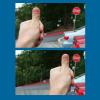
Experiencing Parallax With Your Thumb
Source Institutions
In this activity, learners investigate parallax, a method used to measure distances to stars and planets in the solar system.
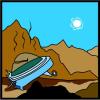
Chances Are: OH NO! Look Out Below for a UFO
Source Institutions
In this math lesson (on Page 13), learners predict and simulate the likelihood of an event occurring.

Rocket Pinwheel
Source Institutions
This is an activity about motion, power, air and Newton’s Third Law of Motion, which states that for every action there is an equal and opposite reaction.
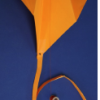
Kites
Source Institutions
In this engineering/design activity, learners make a kite, fly it, and then work to improve the design. Learners explore how their kite design variations affect flight.

Standing in the Shadow of Earth
Source Institutions
This fun and simple hands-on astronomy activity demonstrates the shadow of the Earth as it rises as a dark blue shadow above the eastern horizon.
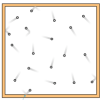
What Causes Pressure?
Source Institutions
In this kinesthetic activity that demonstrates pressure, learners act as air molecules in a "container" as defined by a rope.
Is It Possible: Estimating Measurement
Source Institutions
In this activity, learners will decide together on a question about how far, long or high the group could reach together.
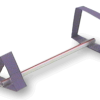
Straws and Airplanes
Source Institutions
Create airplanes from straws and geometric shapes. Test them out to see how far they can fly, or how accurately they can be aimed.

Base Station Walk-Back
Source Institutions
In this activity, learners will train to improve lung, heart, and other muscle endurance as they walk a progressive, measured distance.

Family Scavenger Hunt
Source Institutions
In this activity, learners will take a walk with their family and incorporate a scavenger hunt. They will explore topics like ABC’s, numbers, colors, and shapes as they search for related items.
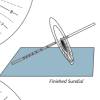
Equatorial Sundial
Source Institutions
In this activity, learners make an equatorial sundial, which is simple to construct and teaches fundamental astronomical concepts. Learners use the provided template and a straw to build the sundial.
